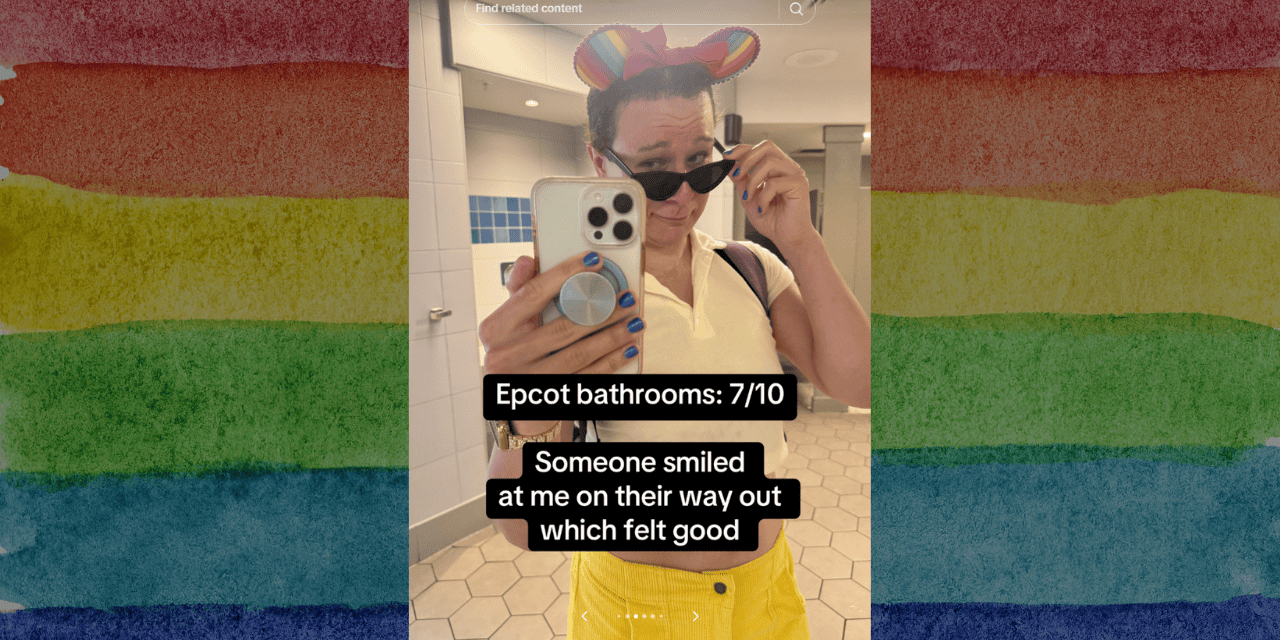Sexualizing Schoolchildren: Comprehensive Sex Ed

This is the first in a series of articles about how children – from pre-kindergarten on up – are introduced to sexual topics in school. Along the way, we’ll point to resources parents and concerned citizens can use to push back on the sexualization and confusion of children. Since we’re dealing with how sexual issues are taught in classrooms, you can expect that some of the examples may be crude or graphic.
“Children are not equipped to bear the weight of adult sexuality.”
I don’t remember where I first heard this truth, but I know it was in the context of ministry to relationally and sexually broken people. Many of us had been forced to bear the weight of adult sexuality in childhood. Early and inappropriate sexualization had affected our lives, relationships, thoughts, beliefs and actions, helping lead many into sexual sin, addiction and broken relationships.
But more and more these days children are exposed to adult sexuality – not by a predator, pornography or entertainment – but in the classroom.
One of the most obvious ways this is happening is through what proponents call “Comprehensive Sexuality Education” (CSE).
What is Comprehensive Sex Education? And who is promoting it?
Years ago, if schools even taught basic sex education, educators usually promoted abstinence, emphasizing delaying sexual activity until marriage. This sex ed focused on biology, puberty, reproductive systems and preventing sexually transmitted infections.
But in many schools, this has been replaced with CSE – a radical “rights-based” and “pleasure-based” sexuality curriculum.
CSE is mandated in many states and promoted by groups like Advocates for Youth, an LGBT activist organization; Planned Parenthood, the nation’s largest provider of sex education curriculum; Answer – Sex Ed, Honestly, producer of the infamous “AMAZE” videos for children and adolescents; and SIECUS: Sex Ed for Social Change – their name explains their agenda.
International Planned Parenthood Federation (IPPF) spells out what these groups mean by “sexual rights” or “sexual and reproductive health rights” in their booklet “Exclaim! Young People’s Guide to ‘Sexual Rights: an IPPF declaration” (our emphasis, below):
Why a guide on sexual rights? Young people are sexual beings. They have sexual needs, desires, fantasies and dreams. It is important for all young people around the world to be able to explore, experience and express their sexualities in healthy, positive, pleasurable and safe ways. This can only happen when young people’s sexual rights are guaranteed.
“Exclaim!” says these sexual rights are universal, inalienable and indivisible – just like constitutionally protected rights. The document explains what inalienable means:
Everyone is entitled to human rights simply for being human. Human rights cannot be taken away or given up from anyone, irrespective of their age, gender, ethnicity, race, religion, nationality, sexual orientation, socioeconomic status, disability, HIV status or health status.
“Exclaim!” says that sexual pleasure is a sexual right, arguing, “All young people are entitled to sexual well-being and pleasure, whether or not they want to have children.” The booklet states that increasing “service providers’ awareness and understanding about young people’s sexual pleasure” will lead to “the highest attainable standard of sexual health.”
Planned Parenthood believes:
Young people’s early encounters of sexual pleasure are very important, since they can shape the way they experience and express their sexuality in the future. Ensuring that all young people understand that they are entitled to sexual pleasure and how to experience different forms of sexual pleasure is important for their health and well-being.
Christians believe that being male or female is of utmost importance, reflecting God’s image and likeness. We believe that marriage is the place for sexual expression, to unite a husband and wife and to bring forth children. Marriage is the highest picture in Scripture of Christ’s relationship with the church.
CSE supporters have separated sexual activity from its deeper purposes – making it all about “my rights” and “my pleasure.” If your children or grandchildren or neighbor’s children are enrolled in CSE, you can bet they’re not being taught a biblical sexual ethic.
What are they teaching children, adolescents and teens?
To justify being taught in schools, CSE advocates often use deceptive language and falsely claim their curriculums are “medically accurate,” “culturally appropriate,” “comprehensive,” “age-appropriate” and “proven effective.”
CSE teaches about abortion as a “natural pregnancy outcome,” not morally different from giving birth and keeping a child or offering the baby for adoption. CSE also emphasizes teaching children how to withhold or give “consent” to sexual activity.
This sexual education often includes teaching children about sexual orientation and gender identity. In fact, the Future of Sex Education guidelines, produced by SIECUS, Advocates for Youth and Answer, encourage discussions about these beginning in kindergarten. Many states and school districts have adopted this guidance.
Beginning in 3rd grade, the FoSE “standards” state that students should learn about “romantic and sexual feelings, masturbation, and mood swings” and “the potential role of hormone blockers on young people who identify as transgender.”
The Massachusetts Family Institute (MFI) exposed some of the approved CSE curriculums approved by the state’s department of elementary and secondary education. The curriculum “Get Real,” from the Planned Parenthood League of Massachusetts, is used by at least 150 schools in the state – and more across the country.
MFI said that “Get Real” introduces 12-year-old children to anal and oral sex. The teacher’s manual suggests this role play scenario for eighth graders:
Will and Todd have been seeing each other for the past year. Will just found out that his family is planning on moving before he enters high school. They both enjoy the sexual part of their relationship. …
Informed Parents of Washington (IPW), a parents advocacy organization, has revealed some of what the approved curriculums in their state are foisting on children.
“Family Life and Sexual Health” (FLASH) is a CSE program developed by the Public Health Department of Seattle and King County, in Washington. A FLASH lesson for students in 9th through 12th grades teaches about “pulling out (withdrawal)” as a birth control method.
IPW notes, “There is no mention of the 22% failure rate, which should be important when telling 14-year-olds about a birth control method that requires experience and a lot of self-control.”
Another example comes from Rights, Respect and Responsibility (3Rs), from Advocates for Youth. The notes for teachers of 2nd grade students explain:
You will notice that this lesson refers to “girls” and “boys” and “male” and “female when identifying body parts. Lessons in higher grades use more precise language and begin to introduce a broader concept of gender. This lesson does, however, acknowledge that “there are some body parts that mostly just girls have and some parts that mostly just boys have.”
Teachers can then explain to seven-year-old children that a girl could have a penis and testicles and a boy might have a vulva and vagina.
There are many more examples of harmful CSE materials, teaching values antithetical to both scientific reality and many parents’ deepest religious beliefs. CSE sexualizes children and goes far beyond what most parents want taught in schools.
So what can parents and concerned citizens do?
Here, a brief caveat is in order: Many school administrators and teachers are terrific; they love children and their subject area and want to help children learn. Many are believers, who go into teaching as part of a Christian vocation. These educators are also disturbed by the sexualization of children.
But some school administrators, staff and teachers do have a radical sexual and social agenda. For whatever reason, they think children can stand under the weight of grownup sexuality.
Some school board members, state legislators, politicians, education department employees and sex educators also believe that children must be taught about sex and LGBT issues – early and often.
Parents and other concerned citizens who work to protect children will need to be wise and discerning, knowing that they have potential allies within schools, on school boards and in government agencies and legislatures.
First, parents should know: Your concerns are valid. Some educators and schools really are damaging and confusing children through sexual education.
Second: You are not alone. If you’re concerned, then other parents in your school probably are, too. We strongly suggest connecting with other concerned parents and developing a network that can explore and expose inappropriate CSE.
Third: You can give your child a healthy foundation about relationships, sexuality and marriage. Focus on the Family has many helpful resources to assist you.
Fourth: There are many resources and things you can do to protect your children. Here are just a few:
- Our free resource Back to School – For Parents helps you understand what’s happening in schools and take practical steps to protect your children. The downloadable PDF includes a section on CSE, lists curriculums to watch out for, explains parents’ rights, suggests action steps and lists helpful organizations.
- State-based Family Policy Councils are another good resource for parents who want to make a difference in their community and state. These groups are often already engaged in working to protect children from egregious sexual education.
- Review and explore your school’s health and sexual education curriculum and any forms you might sign that could affect your child’s sexual health.
- Get to know your child’s teachers, school administrators and other parents.
- Attend school board meetings and speak up when you find offensive sex ed content in your school.
- The Medical Institute for Sexual Health has introduced “New K-12 Standards for Optimal Sexual Development.” These health-based standards are an alternative to SIECUS’ damaging FoSE guidance that can be adopted by states and school districts.
Photo from Shutterstock.
ABOUT THE AUTHOR
Jeff Johnston is a culture and policy analyst for Focus on the Family and a staff writer for the Daily Citizen. He researches, writes and teaches about topics of concern to families such as parental rights, religious freedom, LGBT issues, education and free speech. Johnston has been interviewed by CBS Sunday Morning, The New York Times, Associated Press News, The Christian Post, Rolling Stone and Vice, and is a frequent guest on radio and television outlets. He graduated Phi Beta Kappa from San Diego State University with a Bachelors in English and a Teaching Credential. He and his wife have been married 30 years and have three grown sons.




